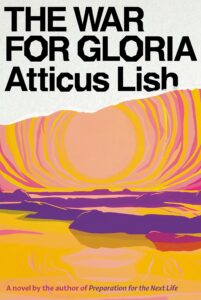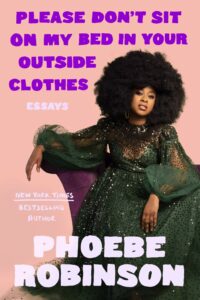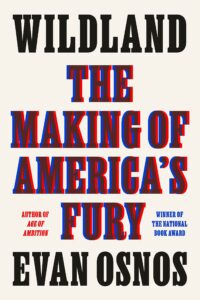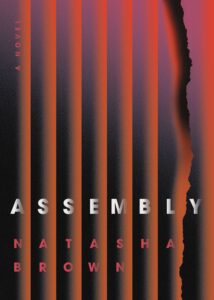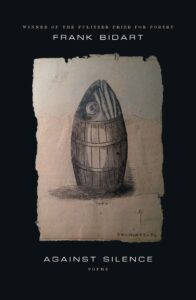
Lit Hub’s Most Anticipated Books of 2021, Part Two
222 Books We Want to Read Before 2022
SEPTEMBER
Jonathan Bate, Bright Star, Green Light: The Beautiful Works and Damned Lives of John Keats and F. Scott Fitzgerald
Yale University Press, September 1
If you need further evidence that we’re definitively past the age of the poet/novelist as rock star (would that we weren’t), it’s right here in Jonathan Bate’s Bright Star, Green Light; it’s amazing, really, that this particular juxtaposition—of two “glamorous” and tragic literary superstars—hadn’t already happened as a full-length, dual biography. Is there more to say about the “beautiful works and damned lives” of Keats and Fitzgerald? Well, if read side-by-side, as cautionary tales of genius, excess, and disappointment, the answer is YES. –JD
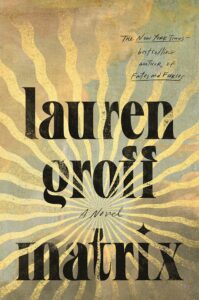
Lauren Groff, Matrix
Riverhead, September 7
Groff’s much-anticipated latest is an engrossing, lyrical reimagining of the life of Marie de France, a Medieval poet about which almost nothing is actually known. In Matrix, Marie begins as an awkward, half-royal bastard who is cast out of the court of Queen Eleanor, whom she passionately loves, and sent to be the prioress of a poor abbey, whose nuns are all but dead. But Marie—defiant, compelling, almost otherworldly—will transform her circumstances bit by bit, seeking to win Eleanor’s favor, and soon also seeking to win power for herself. –ET

Maggie Nelson, On Freedom
Graywolf, September 7
Maggie Nelson is an expert at distilling whatever topic she tackles into crystalline prose. She is the queen of the effortless jumping off point, catapulting her readers into the far reaches of Big Questions. In Bluets, it was love and suffering filtered through the color blue. In The Argonauts, she gave us the story of a pregnancy that branched out into an exploration of identity, caretaking, and family. Now, as the title suggests, she has turned her attention to freedom. What is it? Who has it? And, more specifically, how does it relate to art, sex, drugs, and climate? –KY
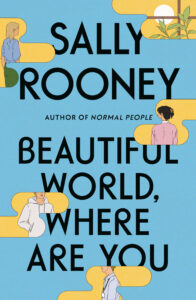
Sally Rooney, Beautiful World, Where Are You
FSG, September 7
Sally Rooney’s newest novel is a Sally Rooney novel, which means that a) it will include contemporary philosophy and tragicomic love affairs and b) will be smarter than it needs to be and c) everyone will read and talk about it no matter what. This version of the Sally Rooney novel is presented in long emails between two female friends . . . one of whom is a mega-successful and somewhat imperious Irish writer who has had a nervous breakdown because of her popularity. Delicious. –ET
Atticus Lish, The War for Gloria
Knopf, September 7
Lish’s debut novel, Preparation for the Next Life, published by Tyrant, garnered acclaim (and a PEN/Faulkner Award for Fiction) for its depiction of life and love at New York’s margins, and for Lish’s particular gift for taut, crackling prose. His follow-up, The War for Gloria, is told from the perspective of a teenage boy determined to care for his mother in the wake of her ALS diagnosis, and amid the re-emergence of his estranged father. It promises to be a heartbreaking story, superbly told. –JG

Robert Olen Butler, Late City
Atlantic Monthly, September 7
In Pulitzer Prize-winner Robert Olen Butler’s latest novel, a 115-year-old former newspaperman lies in bed, waiting to die, as the 2016 election results come in and he tells God (who really wants to know, for the record) about his long life, and the miraculously changing world. –ET
Colm Tóibín, The Magician
Scribner, September 7
The tenth novel from the Booker Prize-winning author of The Master and Brooklyn is an intimate portrait of one of the 20th century’s most intriguing literary figures: Thomas Mann. As he did with Henry James in 2004’s The Master, Tóibin blends the factual with the imagined—following Mann and his complex family through the first world war, the rise of Hitler, World War II, and exile—to conjure the rich inner life, and repressed sexuality, of a man “whose gift is unparalleled and whose life is driven by a need to belong and the anguish of illicit desire.” –DS

Simone de Beauvoir, tr. Sandra Smith, Inseparable
Ecco, September 7
Here’s a treat for all the Simone de Beauvoir fans out there—and a great foray into her work for those not yet christened. Based on de Beauvoir’s childhood friendship (and possibly more than friendship) with Zaza Lacoin, de Beauvoir deemed this one “too intimate” to publish during her lifetime. Also, according to the AFP, Jean-Paul Sartre “held his nose” at the book. Both of these facts have assured my readership, despite the story’s inevitable tragic ending. –ES

Qian Julie Wang, Beautiful Country: A Memoir
Doubleday, September 7
Qian Julie Wang’s memoir recounts her childhood in America as an undocumented immigrant. The facts of her family’s life are an indictment of the US—forced poverty, lack of healthcare, sweatshop labor. Through it all, she finds solace in books (“I read until my loneliness dulled, and I felt myself to be in the good company of all my vibrantly colored, two-dimensional friends”), which explains why Wang, now an attorney, felt so compelled to write this one that she composed it on her daily subway commute. –ES

Carla Power, Home, Land, Security: Deradicalization and the Journey Back from Extremism
One World, September 7
Insofar as we’ve living in era of widespread and rapid radicalization—at home and abroad—one can only hope we’re approaching a new era of deradicalization. But to get there, of course, we need to understand the ways in which toxic ideologies have so readily seeped into the cracks of 21st-century life. Such is the project of Carla Power’s Home, Land, Security, which not only maps the manifold rise of extremism—from ISIS to neo-Nazism and more—but looks at how we might move on from the seemingly ubiquitous hate we live with. –JD
Phoebe Robinson, Please Don’t Sit on My Bed in Your Outside Clothes: Essays
Tiny Reparations Press, September 7
I’ve been a fan of Robinson since the debut of her podcast with Jessica Williams, 2 Dope Queens. Her WNYC Studios podcast, Sooo Many White Guys, was also a delight. I am more than ready to dive into Robinson’s third essay collection, which promises to explore “human connection, race, hair, travel, dating, Black excellence, and more.” Robinson’s narrative voice is like the best friend you can instantly vibe with, no matter how long you’ve been apart. –VW
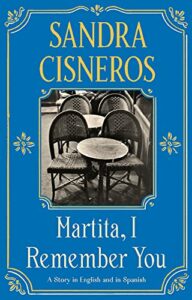
Sandra Cisneros, tr. Liliana Valenzuela, Martita, I Remember You/Martita, te recuerdo
Vintage, September 7
One of the most memorable books I was assigned in high school is Sandra Cisneros’ The House on Mango Street, which captured the feeling of becoming oneself so beautifully. So I am particularly excited for her new book, Martita, I Remember You, which tells the story of Corina, a young woman who leaves her Mexican family in Chicago to pursue her literary dreams in Paris. Of course, it’s not the life she imagines for herself. But the bright spot is that she meets Martita and Paola, and the three form a fierce friendship. Over time, they drift apart, but Corina’s discovery of an old letter brings it all back. It also feels special that this book will tell the story side by side in Spanish. –KY
adrienne maree brown, Grievers: a novella
AK Press, September 7
The premise of this novella might hit a little close to home. Grievers tells the story of a mysterious illness that overtakes a city. The sickness itself, in this world, is that of grief. Our hero, Dune, is mourning the loss of her mother as she tries to understand what has befallen her home. She takes up the work of her late father, a man who had been tracking the dying and desperately trying to find the connecting thread. While Grievers is her first novel, adrienne maree brown is also the author of Octavia’s Brood and Pleasure Activism. She is a singular writer, a visionary whose work is always a bold act of resistance, and I can’t wait to watch her unleash her powers through fiction. –KY
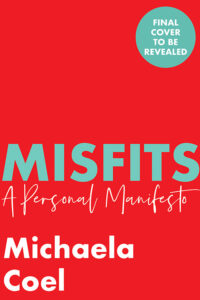
Michaela Coel, Misfits: A Personal Manifesto
Henry Holt, September 7
Michaela Coel is brilliant, and I refuse to hear any arguments otherwise. She first caught my attention with her BBC Channel 4 show Chewing Gum, which was so hilarious I made (read: demanded) my boyfriend watch it. Her recent HBO show, the critically-acclaimed I May Destroy You, is an equal parts heartbreaking and enlightening drama about dealing with and overcoming sexual assault. In this new memoir, Coel issues a call to action for “misfits” to proudly claim their creativity and power. –VW
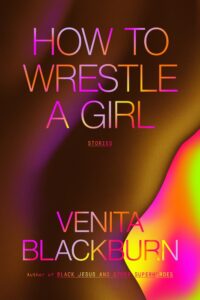
Venita Blackburn, How to Wrestle a Girl
MCD x FSG, September 7
Venita Blackburn has a particularly engrossing way of writing about growing up in all its hilarity, grotesquerie, and cruelty, so I can’t wait to read her sophomore collection, How to Wrestle a Girl. Many of the stories follow a teenage girl navigating grief and burgeoning queerness. Read Blackburn’s story “Biology Class” and see how long you can resist pre-ordering this one. –JG

Joy Harjo, Poet Warrior
W. W. Norton, September 7
Joy Harjo, the first Native American to serve as US poet laureate, bares her soul in this follow-up to 2012’s Crazy Brave. Harjo examines how she fully embraced her literary identity, through recollections of ancestors and family, poetry and music she devoured as a child, and the natural world. Harjo’s poems are lyrical, vivid, and lush—qualities which translate to her prose. –VW
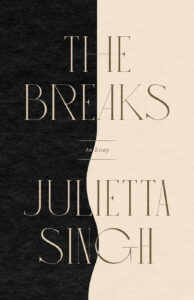
Julietta Singh, The Breaks: An Essay
Coffee House, September 7
The climate crisis, state-sanctioned racism, the long coils of colonialism… These are among just a few of the harsh realities Julietta Singh confronts in The Breaks, a book-length epistolary essay written to her 6-year-old daughter, that also interrogates what it means to be a queer, brown parent in contemporary America. But despite myriad catastrophes, both personal and political, Singh finds reasons for hope in the possibility of community. –JD

Christopher Sorrentino, Now Beacon, Now Sea: A Son’s Memoir
Catapult, September 7
The only thing harder than grappling with an increasingly distant and difficult parent is coming to terms with losing that parent. So it was for writer Christopher Sorrentino, who tells the long and winding story of his mother, a Puerto Rican immigrant who found her way in the rich, vibrant world of the midcentury New York arts scene, a life not necessarily suited to motherhood. As he grieves, so too does Sorrentino come to understand the messiness of any given life, and how hard it can be to understand those we love the most. –JD
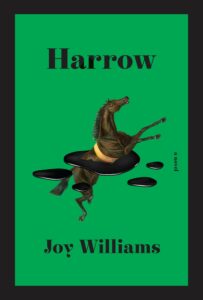
Joy Williams, Harrow
Knopf, September 14
Joy Williams hasn’t published a novel since 2000’s The Quick and the Dead (a finalist for the Pulitzer), so our anticipation for Harrow is hard won. The novel tells the story of a post-apocalyptic world through the eyes of Khristen, a teenager whose mother believes she was “marked by greatness” when she momentarily died as a baby. After Khristen’s mother disappears, she finds herself at a crumbling “resort” populated by a “gabby seditious lot, in the worst of health but with kamikaze hearts, an army of the aged and ill,” plotting revenge on the corporate plunderers of nature. Really, if “post-apocalyptic Joy Williams” doesn’t sell you on this one, you and I don’t have the same values. –JG

Gayl Jones, Palmares
Beacon Press, September 14
The first novel in two decades by literary legend Gayl Jones, who was discovered in the 1970s by Toni Morrison—who, by the way, said of Jones’s debut, Corregidora, “No novel about any black woman could ever be the same after this.” Jones has been a writer’s writer for a long time, but last year, she self-published Palmares, a sprawling adventure novel set in 17th-century Brazil and focusing on a young girl who escapes from slavery to the eponymous and imperiled fugitive slave settlement, only to have the rights picked up by Beacon Press within a few months. “Plot is beside the point in Palmares,” Calvin Baker wrote in The Atlantic, “the book unfolds on a plane of consciousness where the things achieved are shifting relationships and states of being. Ultimately, the book is about taking full possession of the entire Black experience, including tenderness—and Jones’s quest to free the individual Black voice.” Sounds like a Great American Novel to me. –ET
Evan Osnos, Wildland: The Making of America’s Fury
FSG, September 14
Having spent years covering China for outlets like the Chicago Tribune, where he worked as the Beijing bureau chief, and The New Yorker, where he was the China correspondent since from 2008 to 2013, Evan Osnos now turns his attention to a more local story: America’s political shifts as exemplified by the residents of Clarksburg, West Virginia, Greenwich, Connecticut, and Chicago, Illinois. From these cities, all places to which Osnos has a personal connection, he launches an investigation into the political mood of the country and how it has changed over the course of the last two decades. Through the stories of individuals in these cities, Osnos aims to explore what, exactly, happened to the American psyche in that time, and what value those lessons hold for us going forward. –CS
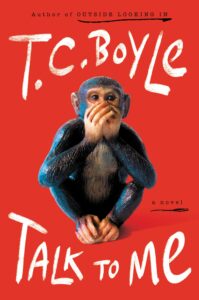
T.C. Boyle, Talk to Me
Ecco, September 14
A PEN/Faulkner Award-winning novelist and one of America’s finest short story writers, T. C. Boyle’s darkly comic, Dickensian fiction has spanned genres and epochs—from 18th-century Scotland to an environmentally-devastated future California—and tackled the lives of historical figures like Mungo Park, John Harvey Kellogg, Frank Lloyd Wright, and Alfred Kinsey. His new novel, Talk to Me, is the story of Guy Schermerhorn, an animal behaviorist who teaches a juvenile chimp to speak in sign language. When Aimee Villard, an undergraduate at Guy’s university, applies to become his assistant, “a romantic and intellectual attachment soon morphs into an interspecies love triangle.” An interspecies love triangle, you guys. –DS
Natasha Brown, Assembly
Little, Brown, September 14
A sharp, experimental novel about a Black British woman who did everything right, and yet still, when faced with her mortality, isn’t sure her life is worth hanging on to. Clocking in at a mere 112 pages, this critique of British racism and the “culture of more” can be read in an afternoon, and should be. –ET
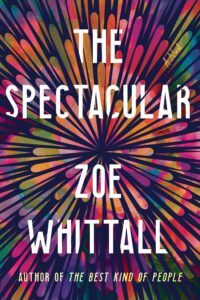
Zoe Whittall, The Spectacular
Ballantine, September 14
I love a multigenerational family novel, and Zoe Whittall’s latest—which brings together a young musician and her estranged mother and grandmother as they attempt to understand one another—sounds extremely promising. Torrey Peters wrote that The Spectacular‘s characters “came to feel like my family.” (And besides her three previous novels and her television writing, Whittall is also a poet, and I’ve long maintained that poets write the best novels.) –JG
Frank Bidart, Against Silence
FSG, September 14
Frank Bidart is a gift—we are lucky to have had him writing poetry for a half century. Against Silence is his eleventh collection, and continues his lifelong navigation of the uncertain spaces between haunting and love, and the fertile gap between words and the world. –JD
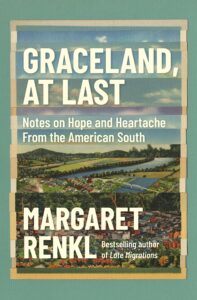
Margaret Renkl, Graceland, at Last: Notes on Hope and Heartache from the American South
Milkweed, September 14
If you haven’t read Margaret Renkl’s Late Migrations, I suggest you start there. You’ll have plenty of time to fall in love with this writer before her new book comes out in the fall. If you are already an avid reader of her column in The New York Times, then perhaps you will recognize some of the 60 pieces in this collection. Graceland, At Last takes us to Renkl’s homeland and shines a light on life in the South, its complexities and its hopes. In these pages, you will find Black Lives Matter organizers, churches sheltering the homeless, and even helpful sheep. Reading Margaret Renkl is like seeing the world in color for the first time. –KY
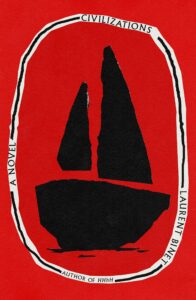
Laurent Binet, tr. Sam Taylor, Civilizations
FSG, September 14
It would be hard to come up with a more compelling novel synopsis than this: Following Christopher Columbus’s desultory and essentially failed attempt to colonize the so-called New World, the Incan emperor Atahualpa seizes the would-be conqueror’s ships, sails to Europe, and foments a revolution. (Oh, and 500 years prior to that a woman-led band of Vikings makes it all the way to Panama.) Yes. –JD
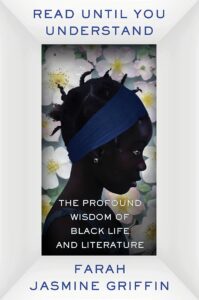
Farah Jasmine Griffin, Read Until You Understand: The Profound Wisdom of Black Life and Literature
W. W. Norton, September 14
One of our favorite genres here at Lit Hub is the reading memoir, so we’re particularly excited for Farah Jasmine Griffin’s homage to the great works of Black genius that have defined her life. From Malcolm X and Toni Morrison to Marvin Gaye and Romare Bearden, Griffin—who is the inaugural chair of the African American and African Diaspora Studies Department at Columbia University—honors here the advice of her late father, who died when she was nine, but left a note saying, “read until you understand.” Amen. –JD
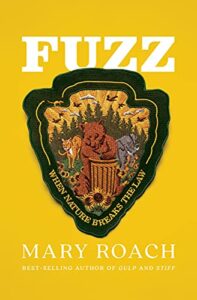
Mary Roach, Fuzz: When Nature Breaks the Law
W. W. Norton, September 14
Mary Roach’s science writing is never boring, and I expect that to hold true for her investigation of human-wildlife conflict. Perhaps not for the faint of heart (expect mass animal death), the book is ultimately working toward what healthy co-existence would look like, which seems, well, very important. –ES
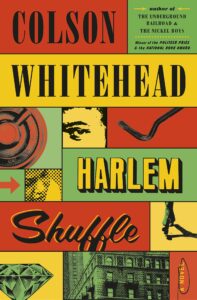
Colson Whitehead, Harlem Shuffle
Doubleday, September 14
The latest novel from the most garlanded man in American letters (over the course of the last decade Whitehead has won two Pulitzers, the National Book Award, the Kirkus Prize, the Orwell Prize, the Dos Passos Prize, the Carnegie Medal for Excellence in Fiction, the Arthur C. Clarke Award, the Library of Congress Prize for American Fiction, and a Guggenheim) is yet another tonal and genre pivot: a riotous story of “heists, shakedowns, and rip-offs” set in early 1960s Harlem, about a struggling used furniture salesman (and son of a notorious local hoodlum) who, in trying to provide for his growing family, gets sucked back into a world of colorful-but-shady characters and outlandish criminal schemes. –DS
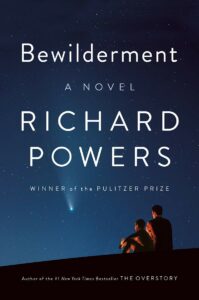
Richard Powers, Bewilderment
W. W. Norton, September 21
This long-anticipated new work by the author of Overstory, which won the 2019 Pulitzer Prize in Fiction, follows astrobiologist and widower Theo Byrne as he searches for extraterrestrial life and raises a 9-year-old son with a misunderstood health condition. Powers is exceptional at grappling with the ways that cosmic questions leave their mark on our everyday domestic lives, and this portrait of a father-son relationship is no exception; with plans for a movie already in the works, this promises to be one of the biggest releases of the fall. –CS
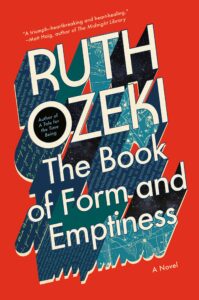
Ruth Ozeki, The Book of Form and Emptiness
Viking, September 21
Ruth Ozeki’s A Tale for the Time Being changed how I thought about structure in literature; now, Ozeki is back with a similarly inventive novel, this time about thirteen-year-old Benny Oh, who begins to hear voices from the objects in his house. The voices lead him to a public library where his world opens up. It’s a coming-of-age story about a boy finding his voice through books, using Zen principles of interconnectedness to examine our relationship with the material world around us. –WC

Sjón, Red Milk
MCD, September 21
Red Milk begins with a dead body and goes on to tell the story of an Icelandic neo-Nazi, Gunnar Kampen (who’s based on the actual leader of a fringe Nazi group). Part biography and part mystery, the novel explores the process of radicalization and the far-reaching legacy of fascism. Maybe not the most uplifting novel on this list, but undeniably important. –JG

Amia Srinivasan, The Right to Sex: Feminism in the Twenty-First Century
FSG (Sept 21)
How should we think about sex? How do we balance pleasure with ethics, private with public? What about post-#MeToo? In this staggering debut, philosopher, professor and London Review of Books contributing editor Amia Srinivasan reaches into the past and future to grapple with tough questions and ask what true sexual freedom might look like. –WC

Rick Bragg, The Speckled Beauty: A Dog and His People, Lost and Found
Knopf, September 21
Why do we love the bad, bad dogs in our lives? Is it because they delight in rolling in carrion? Bark at nothing out the living room window? Make terrible smells when we’re least expecting it? For Rick Bragg, it was all of these things and more, as an unruly stray named Speck wandered into his life at exactly the right time, bringing the kind of love only a dog can into a life that desperately needed it. At the time of Speck’s arrival over the back ridgeline, Bragg was dealing with chemotherapy, kidney failure, and a recurring pneumonia that had him down and out, physically and emotionally. But Speck refused to accept that. Good dog, Speck. –JD
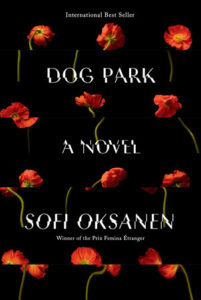
Sofi Oksanen, tr. Owen Frederick Witesman, Dog Park
Knopf, September 21
Following her incredibly popular Purge, Sofi Oksanen gives us another propulsive thriller about a woman unable to forget her lost child and the web of lies she’s built around herself. A novelist and playwright, Oksanen is one of the most awarded literary authors in Scandinavia; now, we get to experience the phenomenon. –WC
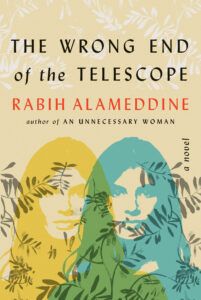
Rabih Alameddine, The Wrong End of the Telescope
Grove, September 21
National Book Award finalist and Dos Passos Prize winner Rabih Alameddine (An Unnecessary Woman) is a gorgeous writer—witty and humane, fiery and profound. I was spellbound by his most recent novel, 2016’s The Angel of History—an intense, fragmented portrait of a man in emotional and psychological crisis, set over the course of one night in the waiting room of a psychiatric clinic—and will be tearing through his new one as soon as I can get my hands on it. The story of Mina, a Lebanese doctor long settled in the U.S. and estranged from her family, who travels to the island of Lesbos to help refugees and confront her past. Once there, Mina treats an undaunted Syrian woman who is dying from liver cancer, and bonds with the matriarch over their shared desire to protect their families from the truth. –DS

Kevin Young, Stones
Knopf, September 21
Kevin Young, whose impressive resume includes working as the poetry editor for The New Yorker and director of the Smithsonian’s National Museum of African American History and Culture, in addition to authoring 14 other books of poetry and prose, is back with a new collection centered on the American South and the stories of his ancestors. Young is an exquisite writer of grief, history, and the subtle ways that family connections reach across time, and this new collection offers plenty of moments for rest, reflection, and learning. –CS

Jon McGregor, Lean Fall Stand
Catapult, September 21
It would be hard to imagine a setting further away from McGregor’s Booker shortlisted 2017 novel, Reservoir 13—a beautiful, riveting story told about a quiet English village—then the harsh Antarctic of Lean, Stand, Fall. Polar surveyor Doc Wright holds the key to an on-ice disaster that has left tragedy in its wake—but despite the tender care of his wife Anna, Wright is locked into an internal world that makes it impossible for him to communicate any of the crucial details. –JD
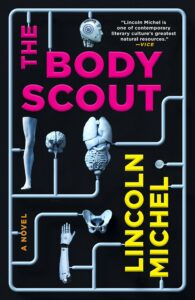
Lincoln Michel, The Body Scout
Orbit, September 21
Most *good* science fiction is almost, by definition, *timely* science fiction, as it imagines its way forward into the world to come, based on the world that is—so it is with Lincoln Michel’s The Body Scout. Set in a near-future New York riddled by pandemics and climate catastrophes, in which gene-deep body-modification is the order of day, the eponymous Kobo gets caught up in the high-stakes corruption of Big Pharma baseball and the inevitable murder that comes with it. –JD
Percival Everett, The Trees
Graywolf, September 21
The somehow still underrated Percival Everett follows up his formally ambitious 3-in-1 novel Telephone with The Trees, a notional thriller set around a Mississippi murder investigation that slowly reveals a puzzling, nationwide web of racist violence. With customary ferocity, Everett’s taut narrative pacing leads us through revelations of the all-too-familiar white supremacy that undergirds so much of American life. –JD
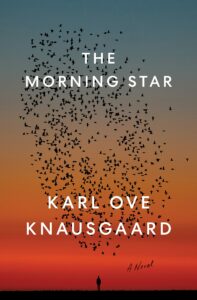
Karl Ove Knausgaard, tr. Martin Aitken, The Morning Star
Penguin Press, September 21
Every time that Karl Ove Knausgaard has a book coming out, am I required to blurb it on Lit Hub? No! But I do, because I’m a Knausgaard stan. In The Morning Star, the sometimes-beloved chronicler of everything returns to fiction with the same intellectual curiosity and unravelling of consciousness (and the same careful attention to domestic life) that he applies to his nonfiction. One night in August, a new star appears in the sky—suddenly, apocalyptically; not even astronomers know what it is. And with suspense and mystery in the sky, literally, we follow several narratives to see how the world, and their lives, have changed forever. –EF
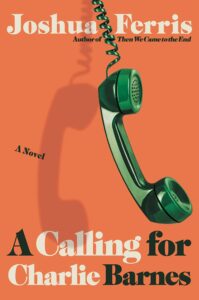
Joshua Ferris, A Calling for Charlie Barnes
Little, Brown, September 21
The fourth novel from the author of the rhetorically innovative Then We Came to an End bears all the hallmark Joshua Ferrisisms his readers have come to love: a big central conceit, a sincere desire to tell us “how we live now,” and a preternatural ability to explore the heaviest of subjects with the lightest of touches. The story of a lifelong schemer and fantasist spinning from the seeming conclusions of the great recession and a cancer diagnosis into an accidental second chance and surprisingly successful search for meaning, Charlie Barnes is a compassionate book with good intentions, rich both in heartbreak and that increasingly rare thing: hope. –EF
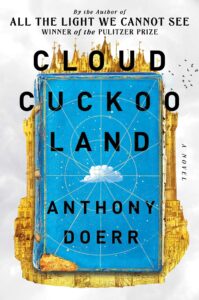
Anthony Doerr, Cloud Cuckoo Land
Scribner, September 21
Novelists don’t exactly come out of nowhere (it’s a thankless lifelong vocation!), but it certainly feels like Anthony Doerr’s sophomore novel, All the Light We Cannot See, burst into the literary world as a fully formed publishing phenomenon. Not only did it win a Pulitzer Prize and get shortlisted for the National Book Award, it spent 130 weeks on the New York Times bestseller list. So yeah, his follow up, Cloud Cuckoo Land—set across time and space, from medieval Constantinople to an interstellar spaceship—is highly anticipated, by readers and critics alike. –JD
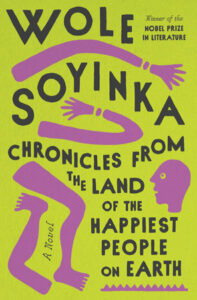
Wole Soyinka, Chronicles from the Land of the Happiest People on Earth
Pantheon, September 21
In a fall books season that feels as lousy with literary superstars as any in past memory, a new novel by Nobel laureate Wole Soyinka ranks as one of the biggest publishing events of the year. As ever, Soyinka explores his overarching concerns—power, corruption, justice (and the absence thereof)—in this literary whodunnit of black market body-snatching, political grift, and international intrigue. –JD
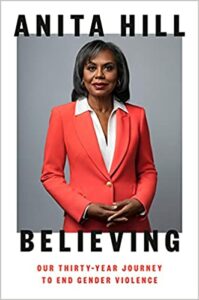
Anita Hill, Believing: Our Thirty-Year Journey to End Gender Violence
Viking, September 28
In 1991, Anita Hill testified against Clarence Thomas. Thirty years later, gendered violence, intersecting with other axes of power, is just as prevalent as when Hill gave her testimony. Hill blends personal experience with deep policy research to create a sweeping survey of institutionalized misogyny—and a call to action. –WC
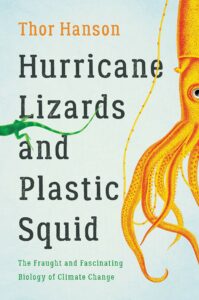
Thor Hanson, Hurricane Lizards and Plastic Squid: The Fraught and Fascinating Biology of Climate Change
Basic Books, September 21
We’re all pretty aware of the large-scale, apocalyptic consequences of climate change (and if we’re not, we should be)—but what of the smaller, more subtle ways in which nature is adapting itself to the overheating planet? Pelicans moving north, sea urchins heading south, lizards growing larger toe pads to better grip during hurricanes… If it wasn’t all so scary, biologist Thor Hanson’s investigation into the rapidly changing natural world would be fascinating. But it’s not. It’s an urgent warning. –JD

Laurie Woolever, Bourdain: The Definitive Oral Biography
Ecco, September 28
It’s been just over three years since Anthony Bourdain died, and it still sucks (don’t even try to do the math on who’s still living). His generosity, his candor, his humanity—these are all virtues we should aspire to everyday. And if we don’t have the man himself, anymore, to show us the way, we can at least learn a bit more about who he was through the stories of his many, many friends, collected here by Laurie Woolever. –JD










